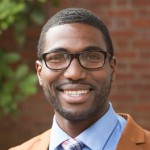How can we connect faith with the work we do from Monday to Friday? Walter R. Strickland II and Benjamin Quinn tackled this question in an interview with Steve Noble. In the interview, they talk faith, work, their new book Every Waking Hour, whole-life discipleship, and Eugene Smith.
Head over to Called2Action to listen to the interview. Or, you can read some of the highlights from their conversation below:
Why write Every Waking Hour?
 Walter Strickland: “As we were talking to believers who were trying to find value in what they do for most their waking hours, we were trying to see if people could connect their faith with their work. People often saw faith as a tertiary thing to their work. They would see their role as an evangelist on the job, which is wonderful. But we think it’s much more than that.
Walter Strickland: “As we were talking to believers who were trying to find value in what they do for most their waking hours, we were trying to see if people could connect their faith with their work. People often saw faith as a tertiary thing to their work. They would see their role as an evangelist on the job, which is wonderful. But we think it’s much more than that.
“Being a Christian on the job is more than having a Bible study at work, although that’s a great thing. But the actual stuff that you do in your job description is part of what God is doing to restore the world to himself. That’s necessarily a part of God’s mission. Granted, there are some job descriptions that don’t fit into those parameters, but for the most part what you do someway intersects with what God is doing to restore the world to himself.”
 Benjamin Quinn: “Prior to this, Walter and I were not credentialed to write a book like this. Instead we were asked by Dr. Ashford, the provost at Southeastern, to join in a project that was spurred on by a grant from the Kern Foundation. The Kern Foundation has done a number of things over the years, and one of the things they’re focusing on right now is faith, work and economics…. They have the Oikonomia Network, the Intersect Project.
Benjamin Quinn: “Prior to this, Walter and I were not credentialed to write a book like this. Instead we were asked by Dr. Ashford, the provost at Southeastern, to join in a project that was spurred on by a grant from the Kern Foundation. The Kern Foundation has done a number of things over the years, and one of the things they’re focusing on right now is faith, work and economics…. They have the Oikonomia Network, the Intersect Project.
“And when Southeastern received a grant from them, one of the things we decided to do with the funds from that grant was to teach three classes in sequence. One that focuses on theology and culture. Dr. Ashford taught that. The second was on work and vocation. That’s what Walter and I did. And the last one had to do with Christianity and economics that David Jones [taught]. All three of those classes then produced a book that coincides with the content from those courses. First was Ashford’s book, Every Square Inch, then Every Waking Hour, then Every Good Thing.”
What is a good theology of work?
Strickland: “In order to understand work, we need to understand it in the context of the biblical story. We see that God created everything. So when we meet God in Genesis, he’s working. This is before the fall, because people often assume that work is a part of the fall. So you find God working, which is in contrast to all the other ideas of god that the Israelites would have encountered in the world they lived in, gods who would delegate work to everyone else while they themselves would sit and be fanned and be fed grapes. But you find the God of the Bible working.
When we meet God in Genesis, he’s working.
“And then you have Adam before the fall working. And it was a good thing. It was one of the things that identified him as one of God’s image bearers…. One of the things that I love in this account before the fall is that we see that God intentionally left things undone in his creation so that humanity could be a part of who God is as his image bearers.”
“There’s all this hidden potential in the garden ready to be actualized. The most basic thing we see God doing is naming things — sky, earth, day, night. Then he says, ‘Hey, Adam, name the animals.’ Now we see humanity taking part in ordering the creation, naming things as God was naming things. So this idea of the hidden potentials in creation coming to fruition by human effort is seen in the fact that we begin the biblical story in a garden, but we end the biblical story in a city. So all of the enterprise, all the infrastructure, is of human effort in order for us to be image bearers of God.”
How do we understand our jobs in the biblical theology of work?
Quinn: “First and foremost, in order to have a thick theology of work, we also need to have a thick understanding of God’s creation. Fundamentally, what God has made is still good. And oftentimes we operate and live under this assumption that what God has made is now bad and we need stay uncontaminated by it. That’s just not true. What God made good, sin did not make bad. Nevertheless, we recognize that Christ himself came. Walter rightly started with the beginning of the story; when we meet God, we meet him at work. Before we know him as father, we see him as worker. In a similar fashion, in the New Testament, before we know Jesus as Christ, we know him as carpenter. I think just reflecting on that by itself is really significant.
Before we know Jesus as Christ, we know him as carpenter.
“One quote we referenced several times in the book is Dorothy Sayers’ comment about building good tables. She has this fascinating comment….
The Church’s approach to an intelligent carpenter is usually confined to exhorting him not to be drunk and disorderly in his leisure hours, and to come to church on Sundays. What the Church should be telling him is this: that the very first demand that his religion makes upon him is that he should make good tables.
“What would the table Christ made look like? We tend to think that what we’re doing [at work] doesn’t really matter that much, but Jesus was a carpenter for [many] years, and everything that he put his hands to in every waking hour of his life we believe was meaningful.
“So how do we actually have a thick theology of work? One is that we recognize that everything God has made actually is good. And as we interact with that [idea] (this is why our definition of work is ‘what creatures do with creation‘), every interaction with creation is an opportunity to love God and love God’s world. We need not relegate that merely to the spiritual, clerical-collar kind of occupations, but to everything in life.”





No comments have been added.